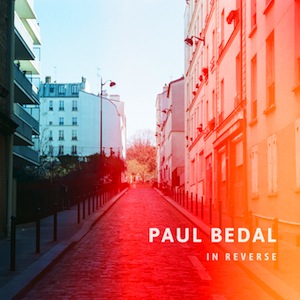Label: Self produced, 2019
Personnel - Alex Quinn: trumpet; Michael Bliss: alto saxophone; Alan Ferber: trombone; Eric Quinn: trombone; Alina Engibaryan: vocals; Adam Rogers: guitar; Ryan Slatko: piano; Santiago Leibson: piano; Jesse Byrom-Carter: upright and electric basses; Ken Ychicawa: drums.
Boasting a compositional vein in the line of trumpeter Alex Sipiagin, Australian bassist Jesse Byrom-Carter enlisted a group of both consecrated players and new seekers for his no-frills post-bop debut album, The Next Tomorrow is Yesterday. In the sequence of a few significant gigs at important New York venues and some rewarding collaborations with acclaimed musicians, Byrom-Carter decided that it was time for leadership, a task he handled with distinction.
The title track opens the album with a refined taste in the orchestration. The experienced guitarist Adam Rogers stands out for a brief moment, but remains linked to the rest of the crew by subsequent unisons. Before his anticipated solo takes place, Grammy-nominee trombonist Alan Ferber, a weighty guest, shows how to build a fine, unhurried speech with enjoyment and focused narrative sense. During the vamp that precedes the finale, the band makes sure to stimulate Ken Ychikawa to intensify his crisp drum chops.
Odd-meter is not an unusual practice here, but “As Is”, with a groovy A section in nine, captures our ears in that sense. The tempo shifts in the B section, though. Rogers stretches out with elasticity and is immediately followed by the bandleader, whose unambiguous statements, besides groovy and spacious, possess a personal charisma. He embarks on another impromptu discourse on “Metamorphosis”, a swinging post-bop fantasy, which, starting at 4/4 and ending at 3/4, indicates a proper pulse control. Pianist Ryan Slatko speaks according to the former time signature, while Rogers and alto saxophonist Michael Bliss trade bars after the tempo variation.
Vocalist Alina Engibaryan displays the scope of her warmhearted voice on “Dreams Untethered”, a gently brushed waltz that unfolds with serenity, as well as on “Edge of Space”, which evolves with a rich R&B feel reminiscent of Stevie Wonder. Both pieces have lyrics written by Byrom-Carter, yet, on the former, she ventures into improvisation with impressive harmonic insight. “Hy Brasil” is another selection where we can hear her voice projected in unison with the horn section. There are no words this time and, despite the title, no major bossa or samba feel is detected, but rather an adult contemporary jazz outlined with popping electric bass lines. Following Alex Quinn’s trumpet solo, the tune shifts in tempo, incorporating another measure of Rogers’ talents as a soloist.
Pianist Santiago Leibson, who had shone on “As Is”, also steps forward on “Hand of Fate”, doing it with chromatic shifts and other legitimate ideas.
Garnished with dynamic shifts and some interesting solos, this cerebrally structured first recording will certainly serve to raise Byrom-Carter’s profile.
Grade B
Favorite Tracks:
01 - The Next Tomorrow is Yesterday ► 02 - As Is ► 03 - Dreams Untethered








































